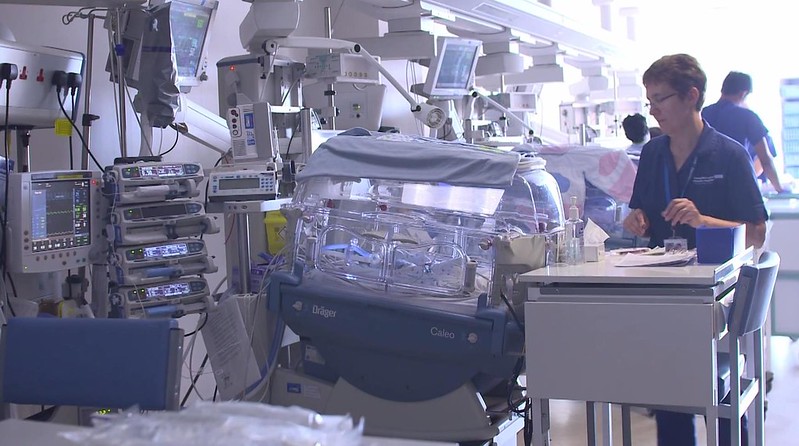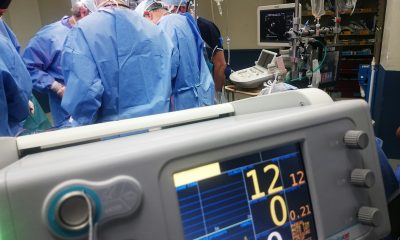Biotech
Innovation in Healthcare Technology, Key to the Sustainability of the Healthcare System
Lluís Blanch identified two barriers to innovation in healthcare technology: the lack of interoperability of data and the lack of competitiveness. For María Elena Hernando, UPM professor, the future challenge in healthcare technology is to collect patient data in the least invasive way possible, involve the patient, and achieve shared decision-making.

The Innovation Conference ‘Keys to the new healthcare system’, organized by the Institute for the Development and Integration of Healthcare (IDIS Foundation), in collaboration with Farmaindustria and Fenin, showed that innovation in healthcare technology is key to the economic development of the country and the sustainability of the healthcare system.
In this sense, it was pointed out that the recovery plans seem to anticipate new models of public-private collaboration, collaborative environments in which the role of the healthcare technology industry will be increasingly relevant as a dynamic agent of innovation and as a strategic ally of the system and of healthcare professionals.
Read more on the importance of innovation in the healthcare system and find the latest business headlines of the day with the Born2Invest mobile app.
Innovation in healthcare technology
“Covid-19 has put accessibility to the healthcare system in check. Innovation in healthcare technology is a real catalyst for being able to treat more patients and is key to the economic development of the country and the development of the healthcare system,” explained Maria Vila, Vice President of Medtronic Spain and Portugal.
In addition, she assured that we must invest in healthcare technology. “We have had the news of the Inveat Plan with 800 million for the renewal of high-tech equipment, but we still have a long way to go”. He also specified that the Inveat Plan is limited to certain equipment. “Not everything is to buy equipment, sometimes we need digital solutions,” he said.
Lluís Blanch, coordinator of the Itemas network, wanted to highlight the contribution to innovation of the “great forgotten”, the hospitals, where there is talent, money, and patients. “Hospitals have already had innovation units for seven or eight years. Whether they are permeable to the whole hospital depends on who is in charge in the hospitals (managers and directors). If we get them interested in innovation, these units will continue to be there,” he explained.
For her part, María Elena Hernando, professor at the Universidad Politécnica de Madrid (UPM), gave her view from the academic sphere on the work of training in innovation and advocated the retention of talent. “The culture of innovation has to start moving from schools. When our students go to hospitals they arrive with an open mind and are able to think of solutions.” As for biomedical engineering, he stressed that its role is fundamental. “You can’t live progress without it being technology that helps us in diagnosis and time optimization.”
During this second round table moderated by Margarita Alfonsel, secretary-general of Fenin, the existing barriers in the field of innovation were highlighted. The first of these is the quality of the data. “Today in hospitals there is no interoperability in data, they do not communicate and it is really problematic. A lot of work needs to be done with the industry to make the data interoperable,” said the Itemas network coordinator. He also identified a second barrier: the lack of competitiveness. For this reason, he called for “more subsidies for start-ups”, as he considers it important for them to be in the territory, to put down roots and to be competitive.
Lluís Blanch identified two barriers to innovation in healthcare technology: the lack of interoperability of data and the lack of competitiveness.
The future role of healthcare technology
For the UPM professor, the future challenge in healthcare technology is to collect patient data in the least invasive way possible, involve the patient, and achieve shared decision-making. “I expect a very big boost to this joint innovation from academia, hospitals and industry”. The speakers also stressed the importance of selling this innovation, creating wealth, and being able to measure the return.
Ángel de Benito, Secretary-General of the IDIS Foundation, closed the conference by stressing that “health and healthcare results depend on the degree of innovation that we are able to bring to the healthcare system”. Finally, he assured that the driving force behind the new healthcare model must always be close public-private collaboration.
__
(Featured image by TheIET via Flickr)
DISCLAIMER: This article was written by a third party contributor and does not reflect the opinion of Born2Invest, its management, staff or its associates. Please review our disclaimer for more information.
This article may include forward-looking statements. These forward-looking statements generally are identified by the words “believe,” “project,” “estimate,” “become,” “plan,” “will,” and similar expressions. These forward-looking statements involve known and unknown risks as well as uncertainties, including those discussed in the following cautionary statements and elsewhere in this article and on this site. Although the Company may believe that its expectations are based on reasonable assumptions, the actual results that the Company may achieve may differ materially from any forward-looking statements, which reflect the opinions of the management of the Company only as of the date hereof. Additionally, please make sure to read these important disclosures.
First published in iSanidad, a third-party contributor translated and adapted the article from the original. In case of discrepancy, the original will prevail.
Although we made reasonable efforts to provide accurate translations, some parts may be incorrect. Born2Invest assumes no responsibility for errors, omissions or ambiguities in the translations provided on this website. Any person or entity relying on translated content does so at their own risk. Born2Invest is not responsible for losses caused by such reliance on the accuracy or reliability of translated information. If you wish to report an error or inaccuracy in the translation, we encourage you to contact us.

-

 Markets4 days ago
Markets4 days agoMarkets, Jobs, and Precious Metals Show Volatility Amid Uncertainty
-

 Biotech2 weeks ago
Biotech2 weeks agoDNA Origami Breakthrough in HIV Vaccine Research
-

 Cannabis12 hours ago
Cannabis12 hours agoAI Can Mimic Psychedelic Experiences but Cannot Truly Feel Them, Study Warns
-

 Cannabis1 week ago
Cannabis1 week agoWhen a Cutting Becomes a Cannabis Plant: Court Clarifies Germany’s Three-Plant Rule
























